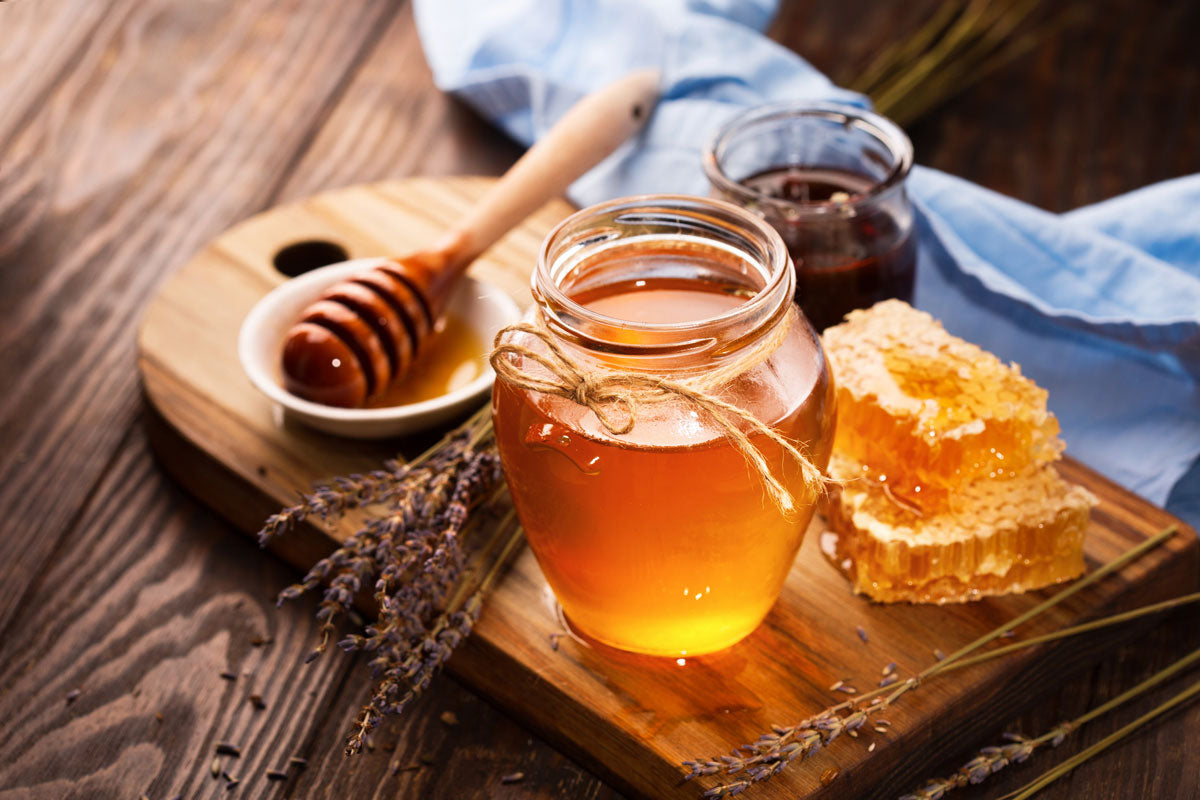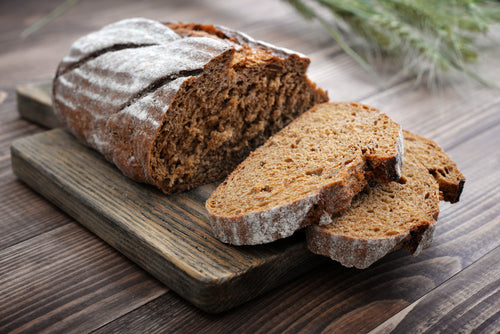It's the information age. Resources and information, articles, and research can be easily shared nowadays, thanks to the internet and mobile devices that keep us continuously connected. But not all information is good information. Not every data source can be relied upon to be accurate for many reasons. Human error or information is lost in translation, misunderstandings and misleading information exist, and we at the Hallelujah Diet aren't strangers to this.
For over three decades and going strong, the Hallelujah Diet has seen some of the most entertaining ideas about what is and isn't part of our diet, and while some give us a chuckle, others can be dangerous. We thought we'd sit down with all of you and debunk the top 12 myths surrounding the Hallelujah Diet.
Myth #1: The Hallelujah Diet is a 100% vegan diet.
While we encourage adding more fresh, raw fruits and vegetables—the Hallelujah Diet isn't 100% vegan. True veganism means ensuring you don't consume any animal products. That means no food or nutrients from an animal source, so no eggs, fish oil, or cow milk, for example.
The Hallelujah Diet allows exceptions, such as raw honey made by bees and fish oil for the essential DHA and EPA, which can be found in our diet.
Myth #2: The Hallelujah Diet's primary source of nutrition is whole grains.
While we acknowledge there are benefits to eating organic whole grains, all whole grains, when consumed, contribute to higher leptin and insulin levels. Leptin is a hormone that our bodies release to maintain an average weight. If there's a resistance to leptin in the body, increased leptin can lead to feeling hungry and eating more even though your body has enough. Elevated insulin levels can cause obesity and lead to health issues like heart disease and cancer. The Hallelujah Diet’s primary source of nutrition is whole (organic when possible) vegetables, with a moderate intake of organic fruits, nuts, seeds, legumes and whole grains.
Myth #3: When you follow the Hallelujah Diet, you aren’t allowed to eat cooked food, ever.
While it's true Rev. Malkmus' original journey to creating the Hallelujah Diet came through healthier eating of raw fruits and vegetables and natural hygiene, his research also showed many benefits to having certain cooked foods. Consuming nothing but raw foods 100% of the time could lead to developing nutritional deficiencies. Depending on the vegetable, in some cases, you might find more beneficial nutrients when it's cooked, such as unlocking beta-carotene when sweet potatoes or carrots are cooked.
What's important is knowing which nutrients are preserved, increased, or destroyed depending on whether they are raw or cooked. For instance, water-soluble vitamins like vitamin C are usually destroyed with heat. Living enzymes, essential to our gut biomes that come from vegetables, fruits, seeds, and nuts, can also be destroyed with heat, and should be preserved.
Last but never least, for many, we are so ingrained in eating fully cooked food that making the first step to healthier food can be difficult. Trying to cut out all cooked food immediately can make adjusting your diet far more complex than it needs to be. We don't want our Hallelujah Diet family to feel guilty or like a failure when they begin making their transition, so we allow for some healthy cooked foods. On average, we encourage our Hallelujah Diet family to consume 85% of their foods raw with 15% cooked. The cooked portion helps insure adequate caloric intake and adds more variety of foods to the diet.
Myth #4: The Hallelujah Diet is for people who are sick or have chronic illnesses.
Many mistakenly assume that the Hallelujah Diet is only for people feeling ill or suffering from disease or chronic illnesses. Unfortunately, the mantra of diet culture and other misinformation about raw diets seem to portray specific diets as only helpful in certain situations. The Hallelujah Diet is for everyone, whether they're completely healthy, trying to get healthier, newly diagnosed with certain conditions, or have lived with them for years.
Our diet is outstanding for anyone looking to improve their overall health and lifestyle. It finally reaps the benefits of nutrient-packed food, significantly reducing the risk of disease and illness from over-processed foods.
Myth #5: Olive oil is the only healthy oil to cook with or eat on the Hallelujah Diet.
It is true that many years ago when we first began our journey to change the world's eating habits for the better, olive oil was the healthiest oil to cook with then. But thanks to science and research, we've learned that many oils are even more beneficial than olive oil to cook with. Now, there are a handful of oils we highly prefer that can handle temperatures for cooking and save the olive oil as a drizzle over salads.
• Unprocessed, raw, and unrefined coconut oil
• Avocado oil
• Chia oil
• Sesame seed oil
Myth #6: You must follow the Hallelujah Diet perfectly, at all times.
For some reason, many assume that our diet must be done perfectly or not at all. What does perfection look like? We know that as humans, perfection is different for every single one of us and, in most cases, impossible. We are flawed beings continuously striving to improve and better ourselves.
You don't have to be flawless to follow the Hallelujah Diet! It's a simple concept that doesn't demand perfection, but the addition of healthier foods, food awareness, and the slow reduction of foods known to cause issues.
• 85% raw fruits, vegetables, seeds, and nuts
• 15% cooked food
• Freshly extracted vegetable juices each day
• Limit fruit to no more than 15% intake to keep natural sugars low
• One cooked meal a day
• Replace extremely unhealthy foods with healthier options to eliminate health risks.
Myth #7: The Hallelujah Diet creates nutritional deficiencies.
Did you know that more than half of the people in the United States eating over-processed, GMO-laden, pesticide-treated foods are at a greater risk of vitamin and nutrient deficiencies than those following our diet? The busy lifestyle and exposure to toxins also affect shortages of vitamins, minerals, and nutrients.
The Hallelujah Diet is a thorough plan backed with nutrition-packed fruits, vegetables, and leafy greens devoid of chemicals, processing, and refined sugars. Our diet serves far more nutrients to our bodies than any deep-fried hashbrown, pre-made breakfast biscuit, or microwaved meal out there.
And when coupled with our extensive companion supplements, everyone will have enough healthful nutrients when practicing this amazing diet.
Myth #8: Healthy food is hard to eat because it is bland and boring.
Not at all! Have you taken a moment to look at our recipe section? It has a fantastic variety of flavors and tastes. Indulge in your favorite decadent desserts like carrot cake, chewy fudge, or cheesecake, or dive into Asian-inspired dishes like Sesame Kelp Noodles and so much more. Many of our recipes are bursting with complex, rich flavors. Thanks to deliciously fresh herbs and spices, you'll find gourmet options that might rival any favorite restaurant meal.
Myth #9: No foods with fat are allowed to be part of the Hallelujah Diet.
Not all fat is bad fat! There is such a thing as healthy fats, and these are extremely important to maintaining our mental and physical health. When it comes to healthy fats that keep our bodies and minds working optimally, we aren't afraid to encourage them! Eat avocados, coconut oil, hemp seeds, nuts, fish oil, flax oil, or sesame oil—they're good for you! In fact, it is hard to really stick to the Hallelujah Diet long term without including a moderate amount of daily healthy fats, especially in whole food forms like avocados and nuts and seeds.
Myth #10: The Hallelujah Diet is very hard to follow.
As Ann likes to say, "the Hallelujah Diet is simple, just not always easy." It's not so much that the diet is too hard to follow; the foods that are over-processed, high in refined sugar, and low in nutrients are difficult to leave behind. For one, many of these unhealthy foods are made to be convenient, but the use of harmful chemicals and sugars has also made them addictive.
Transitioning from these unhealthy foods to healthier foods is not easy or quick, but there are ways to make the Hallelujah Diet easier. We have many tools, such as recipe suggestions, food prep, nutrition information, and excellent ways to manage food preparation, which becomes the key to a smoother transition and success.
We spent years and put our experiences together to make the Hallelujah Diet more accessible to everyone, such as the salad box concept on day three of the 60 Days to Reclaim Your Health program meant to ease the transition.
Myth #11: Diet and lifestyle changes are 100% successful, every time.
No one is perfect. There are many factors in life that can influence a person's success. Issues such as long-time illnesses, harsh medical treatments and medications, life's circumstances, and specific stressors that make it hard to adhere to the diet can all play a part in whether it's a success.
Most of those who follow the Hallelujah Diet experience a reduction of symptoms and reversal of illness; there is always the chance that some may never be able to see a complete turnaround. What you can be guaranteed to see when switching to a healthier, more raw diet is slowing progression and a more improved, extended life.
Myth #12: The Hallelujah Diet is costly because you have to buy expensive supplements and food.
While fresh fruits and vegetables are expensive, especially when it comes to ensuring they are genuinely organic, non-GMO, and pesticide free—the cost of meats, milk, and processed foods can be more expensive, especially in terms of your health and happiness. Nowadays, many convenient, processed foods are as expensive as healthy options.
Many of our Hallelujah Diet families report that they've seen up to a 30% decrease in their monthly food bills when the whole household adapts to eating better.
What many fail to consider outside of the cost of fresher ingredients is the cost in health when we feed our bodies the wrong foods. Increases in a mental fog, possible depression, medical bills and treatments, lost time from work, and the overall inability to function as you should are all the hidden costs of not eating as God intended.
Remember years ago, when mom used to say, "Finish your vegetables! They're good for you!" She was right! With all the excellent new research and evidence, we've been able to share, discover and learn about food, the Hallelujah Diet may be the best diet yet to help you find your way back to a renewed, improved you!
Why not give it a try and see the results for yourself?
We hope we've helped demystify some of the myths you might have heard about the Hallelujah Diet.







2 comments
Diamond Bateson
Thank you. This article was very helpful.
Thank you. This article was very helpful.
Paul OHara
Thank You
Thank You